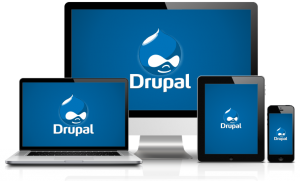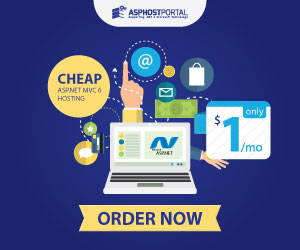What is Drupal?
Drupal is a free community supported framework for creating, organizing, presenting and managing a website. It powers millions of websites and applications from all over the world. Drupal makes it easy for contributors to publish to websites and easy for developers to deploy new sites as well as add features to existing ones.
Most commonly referred to as a content management system, or CMS, Drupal has much more to offer. Drupal installations include a set of modules called Core Components, which provide features such as user management, menu systems, and user contributed content. The Drupal open source community (one of the largest in the world) contributes and supports thousands of free flexible and robust modules and themes, which can be easily integrated into websites to offer powerful features such as multimedia, calendars, rating systems, and other social media tools.
Drupal is also an application framework that can be used to build other aps. Drupal requires no programming skills yet the HTML code produced is accessible, cross browser compatible, and search engine friendly. Drupal is used for every type of site from personal blogs to highly trafficked enterprise level sites. 2% of all websites worldwide are built in Drupal including whitehouse.gov and many other high profile, highly visited sites.
What is Drupal Used for?
Drupal is a great choice for building all manner of websites from simple 1 page personal websites to enterprise level applications. It is particularly well suited to e-Learning systems, Community/social networking sites, and news publishing, where its powerful authoring and publishing features allow administrators to create, revise, and deploy content in a rapid and organized manner. User management, site reporting and statistics, ad management, community management, and other administrative functions utilize an intuitive and robust back-end user interface.
What is New in Drupal 8.8.2?
This release introduces powerful features that will help us all take Drupal to a whole new level. The new stable JSON:API core module as well as the intuitive and accessible stable Layout Builder are game-changing.
Layout Builder is stable
The Layout Builder module was originally introduced as an experimental module in Drupal 8.5.0. As of Drupal 8.8.2.0, Layout Builder is now stable and ready for production use! It provides a powerful, accessible, mobile-friendly page building tool that is fully compatible with revisions, workflows, and in-context previews.
The Layout Builder enables site builders to rapidly create layout templates for content that speed up the development process. It also permits content authors to easily customize individual pages with unique layouts.
The interface allows drag-and-drop management of your content blocks. It additionally supports keyboard controls and toggling the content preview on and off to give the content editor complete control of their experience while building their layouts.
The result of all these features is a state-of-the art content management solution that streamlines mass-production while also supporting unique creation. 123 individuals and 68 organizations contributed to this feature. More than 40 of the individual contributors volunteered some or all of their time.
New stable JSON:API support
JSON:API support is now included as a stable core feature. The JSON:API specification is an easy and fast way to build decoupled applications. Drupal core’s JSON:API module is feature-complete and easy to use with robust out-of-the-box support and simple setup. JSON:API makes it simpler than ever to build ambitious projects. 147 contributors and 76 organizations contributed to this new feature. Among the individual contributors, more than 50 volunteered some or all of their time.
For example, by simply navigating to a URL like
https://example.com/jsonapi/node/article, you can get a list of available articles on your site, and filter further from there, to display your Drupal content in decoupled websites, mobile applications, and so on.
Improvements in experimental Media Library
The experimental Media Library has numerous significant improvements in this release. The Media Library is built on top of the stable Media module, which allows reuse of images, documents, and even embedded remote media like YouTube videos. Items in the Media Library can be managed with drag-and-drop. This release improves the design and accessibility of the user interface, allows inline media creation in the library, and provides more flexible grid and table views. 310 contributors and 122 organizations contributed to this new feature. More than 100 individuals volunteered some or all of their time!
Revisionable menus and taxonomy terms
Custom menu links and taxonomy terms are now revisionable, which allows them to be used in editorial workflows (similarly to nodes, media, and custom blocks). The Entity system now also provides a new Update API to support conversion of further entity types. It supports converting the schema of any content entity type between non-revisionable or non-translatable and revisionable or translatable, which also works when there is pre-existing data for the entity type whose schema is being changed. All these changes improve core support for the Workspaces module.
New features in the Umami demo profile
The Umami food magazine demo is now more accessible and demonstrates more features out of the box, including a new welcome tour, Layout Builder integration for recipes, and multilingual features. The profile now includes a curated set of Spanish translations, and more languages are in the works. 187 contributors and 84 organizations have contributed to Umami, with more than 60 individuals volunteering some or all of their time.
Umami empowers first-time users to spin up a Drupal project in no time so that they can use to evaluate Drupal and learn about its major components.
On the way to Drupal 9
Drupal 8.8.2.0 includes optional support for Twig 2 (for sites that can patch their Composer configuration). Optional support for Symfony 4 also received a lot of contributions and should be complete in 8.8. This is important work, because Drupal 9 is planned for June 3, 2020 and will update various dependencies, primarily Symfony. Testing Drupal with updated third-party dependencies will help us get better feedback on our compatibility with these dependencies and any difficulties sites encounter when upgrading.
Drupal 8 Features
Tools for systems
Meet Drupal 8, a powerful new suite of tools, and the strongest link in your new content supply chain. Interact with countless applications, thanks to REST-first native web services. Use progressive decoupling to break free from back-end restrictions without sacrificing security and accessibility. Deliver faster, with enhanced entity caching and better integration with CDNs and reverse proxies. With Drupal 8, you can build almost any integrated experience you can imagine.
Simplicity for editors
Turn great ideas into great experiences. Leave your desktop behind and create compelling content on more modern devices than ever. Work efficiently with better previews and drag-and-drop image uploads. And when you need to make quick changes, choose in-context editing and use only the tools you need.
Power for administrators
It’s easier to customize components—views, lists, blocks, admin tools, and more—than ever before. Control how data is displayed without using a single line of code. Structure content with more field types, and add SEO-friendly meaning with native Schema.org markup. Make creating and managing content a great experience too.
Accessibility for everyone
Drupal 8 ships with extensive support for accessibility standards, and not only for color contrast and font sizes. Semantic HTML5 helps you create interactions—even ones with dynamic content—that are more usable. Plus, Drupal now adopts more WAI-ARIA practices. You can make content structures easier to understand for people with disabilities.
Harmony in deployment
Fine-tune your configuration management with an all-new system. It’s now much easier to move configuration changes between environments. That means better deployments and more sophisticated maintenance are at your fingertips. Build with precise control over the integrity of views, content types, user roles, and more. Store configuration data consistently, in a central place. The power to unleash it all is now a standard Drupal feature.
Languages for anyone
Choose any one of a hundred languages at the first step of installation. Translate any component of the software—taxonomy, comments, configuration, image styles, and more. Enjoy better browser language detection, easier right-to-left styling, and built-in transliteration support. You can build unique, customized localizations. And you can use them to create amazing internationalized experiences.
Proudly found elsewhere
Maximize Drupal’s flexibility with object-oriented code and the latest PHP standards. Some of the best-known technologies are now part of Drupal 8. It depends on dozens of external libraries—like Composer, Guzzle, and Symfony2—so you can write and debug code faster, with more confidence. Say goodbye to PHPTemplate; rely on much more readable code when theming with Twig. And use simpler, more unified APIs to add power to your modules and themes.
How to Choose Top and Reliable Drupal 8.8.2 Hosting Provider?
How to choose a top and reliable web host for Drupal 8.8.2? Choosing the top and reliable web host for Drupal 8.8.2 is not a simple task especially with low price offers. You need to take a large number of factors into consideration, including the Drupal 8.8.2 compatibility, usability, features, speed, reliability, price, company reputation, etc. Therefore, we have established this Drupal 8.8.2 review site, which is designed to help you find the reliable Drupal 8.8.2 host within minutes, based on our specialized editors’ Drupal 8.8.2 hosting experience and real customers’ feedback.
Top and Reliable Drupal 8.8.2 Hosting
ASPHostPortal.com
ASPHostPortal.com offer rock solid
Drupal 8.8.2 hosting. They can load and stress test your site against anticipated traffic and recommend the best option for you. They can build your Drupal 8.8.2 hosting platform so that it is highly available, fault tolerant and responds optimally to your end users.
ASPHostPortal.com has Drupal 8.8.2 experts on staffs that are available 24/7 to help, a one click install script to make installation a breeze, and they guarantee their service, money back. ASPHostPortal.com use World Class Plesk Control Panel that helps you with single-click Drupal 8.8.2 installation. The minimal specs of their servers includes Intel Xeon Dual Core Processor, RAID-10 protected hard disk space with minimum 8 GB RAM. You don’t need to worry about the speed of your site. For more detail about top and reliable Drupal 8.8.2 hosting offer, please visit their site at
http://asphostportal.com/



